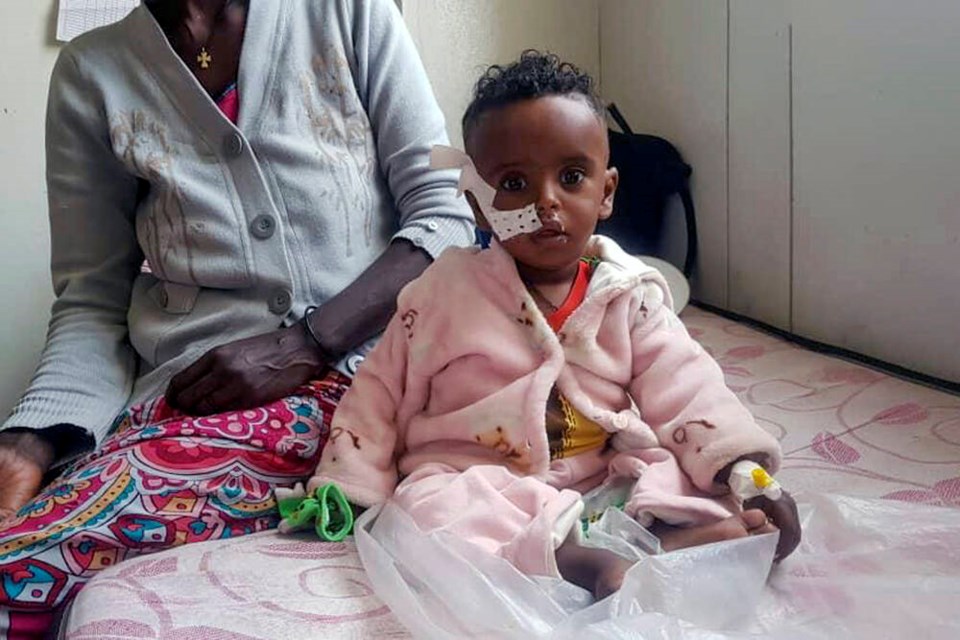It was 1984 in Victoria. Like so many five-year-olds I was not a fan of vegetables. My favourite game during dinner was to hide bits of potato and broccoli under my plate so I could be excused from the table.
I don’t think we remember much of our earliest years but there was one line my parents repeatedly used on me that I never forget. “Finish your dinner. All of it. Including what you hid under your plate. There is a famine in Ethiopia and thousands of Ethiopian children are starving to death.”
Famine? Ethiopia? This was not language in the vocabulary of a typical five-year-old.
Listening to my parents talk of the suffering in Ethiopia made me feel sad and it impacted me greatly. This conversation with my parents sparked a curiosity in me as I learned almost eight million people out of Ethiopia’s 40 million population in the early-to-mid 1980s were affected by the famine, it killed about one million Ethiopians and created hundreds of thousands of refugees and internally displaced persons (IDPs). I also learned about the main drivers behind Ethiopia’s food crisis: the ongoing civil war and widespread drought.
Despite this bad news I was inspired by how the international community attempted to respond and to show solidarity with Ethiopia: The Live Aid benefit concert held in Wembley Stadium in London in 1985 which inspired the We are the World song composed by Lionel Richie and Michael Jackson, the UN and NGOs working tirelessly to deliver food aid thanks to the support of governments like Canada and many more individual donors that wanted to contribute.
I arrived in Ethiopia as part of a United Nations team almost 40 years to the day since that first discussion with my parents. Despite my experience in fragile countries, I am shocked by how history seems to be repeating itself: Climate change triggered drought affects the entire country and civil war rages in the northern Tigray region.
This has caused mass migration in the form of 4.2 million people. Recent data for Ethiopia shows climate change and drought as a key driver for 30 per cent of internally displaced persons, whilst conflict is the main driver for the other 70 per cent. Displacement also fuels conflict: recurrent droughts and floods force many agro-pastoralist communities to migrate and confront one another for control over shrinking ecological yields.
Ethiopia’s population has grown to 115 million inhabitants, which means many more people to feed. The country needs to create, on average, two million new jobs every year in order to match the increasing demand for work from its growing population.
However, the economic reality is there are limited livelihood and employment opportunities, especially outside the capital of Addis Ababa. The UN and the international community should invest in building new schools and new hospitals to support the growing population but sadly many of the interventions we are supporting will focus on reconstruction and repair of the social infrastructure destroyed in the war.
Many Ethiopians, recognizing the dire situation in the country, attempt to migrate out of Ethiopia in search of a better opportunity.
Growing up in Victoria, the time came when I could not wait to get off the island in search of new opportunities. But for many Ethiopians their journey is not quite as simple as jumping on a B.C. ferry.
A visa is a powerful tool in development. However, many Ethiopians are forced to migrate irregularly across borders first travelling through civil war affected regions of the country, then escaping smugglers and human traffickers in Djibouti waiting to take them across the Red Sea, before crossing into war ravaged Yemen on their way to find employment in Saudi Arabia.
Ethiopia is truly a microcosm of the many challenges facing the planet. Climate change impacted weather has caused massive forest fires across B.C. and families in eastern Canada are still cleaning up after the devasting impact of Hurricane Fiona.
In Europe, millions of Ukrainians displaced by war are forced to relocate within their country or find refuge in another country.
I see the worry of the ongoing civil war written on the faces of everyone here. But as I leave Ethiopia, I reflect on that first conversation with my parents.
I know that it is not one person that will change the world but rather the development of a collective consciousness that begins with a simple conversation at dinner time.
When I return home, I will be starting a similar conversation with my two sons.



